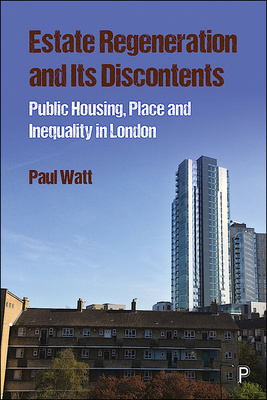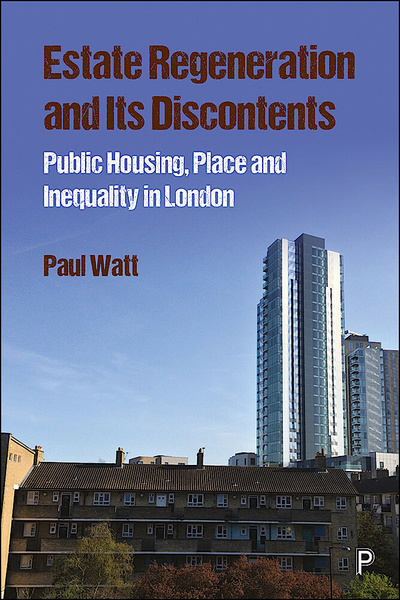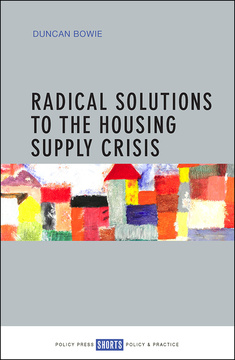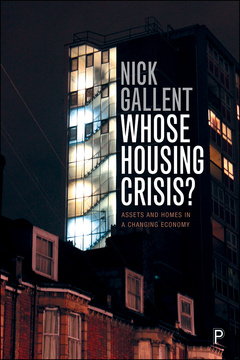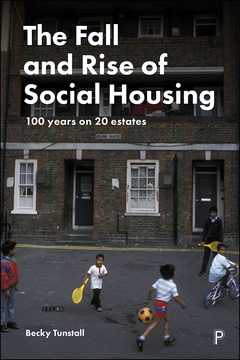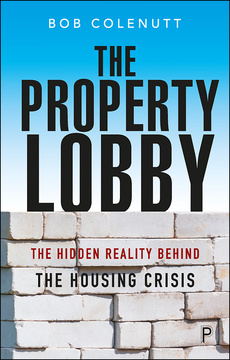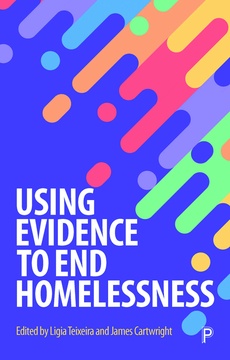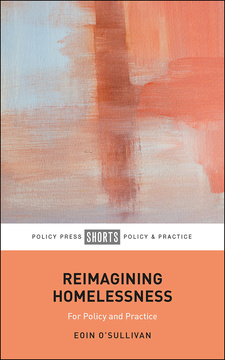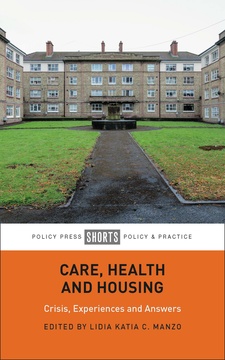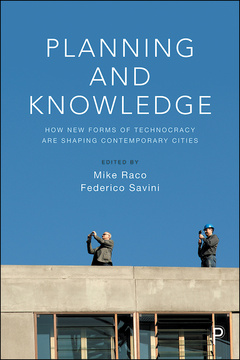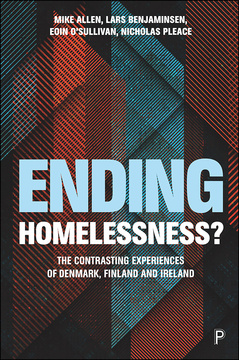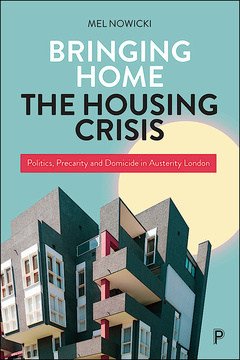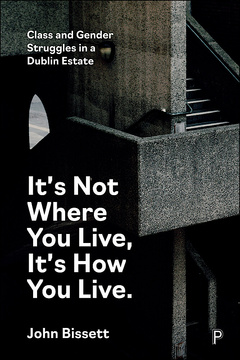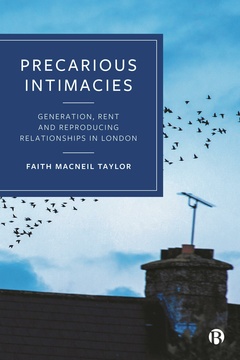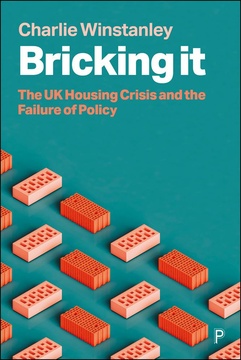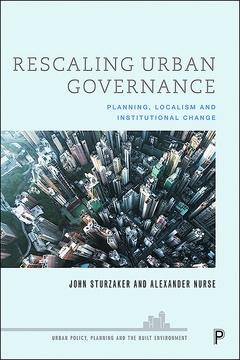Published
Mar 31, 2021Page count
520 pagesISBN
978-1447329190Dimensions
234 x 156 mmImprint
Policy PressPublished
Mar 31, 2021Page count
520 pagesISBN
978-1447329183Dimensions
234 x 156 mmImprint
Policy PressPublished
Mar 31, 2021Page count
520 pagesISBN
978-1447329220Imprint
Policy PressPublished
Mar 31, 2021Page count
520 pagesISBN
978-1447329220Imprint
Policy PressIn the media
Book review: Estate Regeneration and Its Discontents
'Paul Watt: Council housing and gentrification' in A is for Architecture
Public housing estates are disappearing from London’s skyline in the name of regeneration, while new mixed-tenure developments are arising in their place. This richly illustrated book provides a vivid interdisciplinary account of the controversial urban policy of demolition and rebuilding amid London’s housing crisis and the polarisation between the city’s have-nots and have-lots.
Drawing on extensive fieldwork and interviews with over 180 residents living in some of the capital’s most deprived areas, Watt shows the dramatic ways that estate regeneration is reshaping London, fuelling socio-spatial inequalities via state-led gentrification. Foregrounding resident experiences and perspectives both before and during regeneration, he examines class, place belonging, home and neighbourhood, and argues that the endless regeneration process results in degeneration, displacement and fragmented communities.
“Paul Watt is a leading analyst of housing policy and politics. He draws on this experience to make sense of a pervasive and troubling housing policy that is reshaping urban space and urban lives in London and beyond.” David Madden, London School of Economics
"The book enables a new understanding of the complexities of tenure and its interaction with place and housing system dynamics. Watt superbly renders the experiences and views of secure and insecure local authority and housing association tenants, owner-occupiers, RTB owners and those displaced to the private sector, allowing the power of their stories to illuminate a wider explanation for their varied orientations to the regeneration process." International Journal of Housing Policy
“A real tour de force. Essential reading for anyone interested in understanding the links between housing, class inequality and working-class disadvantage.” Tracy Shildrick, Newcastle University
"This brilliantly researched and passionately written book will be passed through generations as a cautionary tale of how public housing and its contribution to London's working-class lives was destroyed by venal politicians on behalf of the real-estate lobby." Stuart Hodkinson, University of Leeds
“Paul Watt is one of our most dedicated academic analysts of the housing regeneration schemes that are so central to today’s London and his commitment and expertise are fully in evidence here. This is a substantial contribution to the debate over what kind of capital we want.” Aditya Chakrabortty, The Guardian
"A monumental and humane book that puts people, places and communities at the heart of its indictment of estate regeneration in London." Andrew Wallace, University of Leeds
“An outstanding and lucid sociological analysis of the changes wrought on London’s public housing communities. Paul Watt not only unearths the realities of housing regeneration but also advances a compelling critique of government policy making.” Keith Jacobs, University of Tasmania
“This book is a powerful and in-depth account of residents’ life experiences in fourteen London public housing estates. Paul Watt’s recommendations are worth exploring and fighting for to stop the human suffering that regeneration is bringing upon some of the most vulnerable in London.” European Planning Studies
“This is an important book, whose biggest contribution to the field is in showing how regeneration has exacerbated London’s housing crisis through the loss of social housing and displacement.” Community Development Journal
“A must read for any life-long student of urban regeneration, displacement, gentrification as well as for policy makers and investors to better understand and hopefully to maintain the use value of estate housing for the city of London.” Tijdschrift voor Economische en Sociale Geografie (TESG)
“This is the definitive empirical account of estate regeneration in London in recent decades, producing and shaping a weight of data and evidence that is utterly compelling and convincing.” International Journal of Housing Policy
Paul Watt is Visiting Professor in the Department of Sociology at the London School of Economics and Political Science.
Introduction
PART I: Policy analysis and research context
Housing policy: the rise and fall of public housing
Urban policy: estate regeneration
The research boroughs and their estates
PART II: Estates before regeneration
Marginalisation and inclusion
Valued places
Devalued places
PART III: Living through regeneration
Beginnings
Degeneration
Displacement
Resistance
Aftermaths
Conclusion
Appendix A: Methodology
Appendix B: Profile of interviewees







